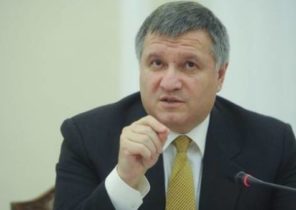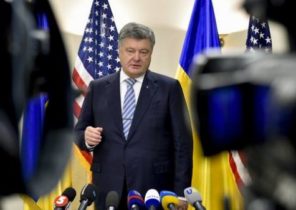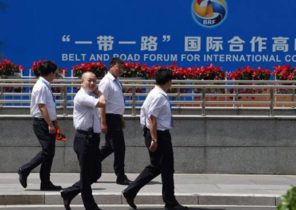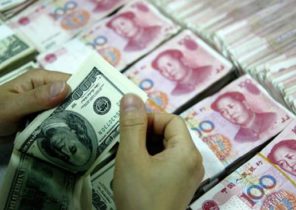The Brits only believe that it is their country, not the United States, played a key role in the victory.
Three months before the may 1945 final victory on fascism in Europe, Churchill, Roosevelt and Stalin met in Yalta to discuss to build the future of the continent.
All three countries have shed for the sake of winning blood, sweat and tears, and their victims are hard to imagine. But which one of them played a major role in the defeat of Hitler? The answer depends on whom you ask — and when.
This week, the newspaper the times commissioned the Institute of public opinion YouGov to conduct a survey in four countries of the West.
Of course, this says little about the actual events, but nevertheless gives an idea of what peoples think about his past and how public opinion changes over time.
The Americans, the French and the Germans are convinced that the most significant contribution to victory made the United States.
But the British have a different opinion — calling the most important player in the UK. This opinion is hardly surprising, given the pivotal role of the military spirit in national identity of Britons. On the British spirit of the times of the London blitz has already invoked even during the current pandemic coronavirus.
According to the British ideology of their country was standing alone against Hitler in 1940-1941 in the early stage of the war, and played a key role in the Normandy landings in 1944 and the subsequent liberation of Western Europe.
This is exacerbated memories of steadfastness in battle — from the Battle of Britain to the “dambusters” and endurance in the rear. In addition, special attention is paid to the role of Britain in Africa, as the second battle of El Alamein in Egypt did not allow Hitler to move to the middle East — these are often considered to be a turning point in the war.
But for all its “romantic” as a military historian and journalist Max Hastings (Max Hastings), the interpretation of military events, the British did not believe that Hitler would manage to defeat the Soviet Union.
Surveys in USA, Germany and France this week came to the same conclusion — these countries believe that without his help the allies defeat the Nazis couldn’t.
The Russians, however, do not pay the West in the same coin. There, the majority believes that the Red Army would have defeated Hitler without the help of the West. According to a survey by the Levada center, a leading independent sociological Institute of the country in 2017, this opinion is shared by 63% of Russians.
And it’s not the only point where Russia is at odds with the West in the interpretation of the Second world war. First, the Kremlin considers the conflict the great Patriotic war of 1941-45, not the Second world war 1939-45 years, preferring to ignore her the first years when the Soviet Union was an ally of Hitler.
There is no consensus regarding the official end date of the war in Europe: the Kremlin is celebrating the end of the war may 9, and the rest of the allies on may 8th.
The argument that the USSR could win alone, most modern historians consider to be a gross assumption that ignores the context.
However, the roots of this exaggeration it is easy to understand. In the war against his sworn ideological enemy, Russia has suffered huge losses the victim, without which it would lose.
Soviet losses — both military and civilian — are superior to the losses of other participants of the war in Europe. The Soviet Union lost 1/11 of the prewar population — compared to 1/125 in Britain.
However, the Soviet Union also scored a startling success — it accounts for 76% of dead German soldiers. In addition, the Red Army made a decisive attack on Berlin, first enlisting in the “lair of the fascist beast” and capturing it.
The West had already acknowledged that the Soviet Union played a key role and have broken the back of Germany.
Historian Daniel Todman (Daniel Todman), author of “War in Britain: the new world” said: “Judging by the then the Newspapers and studies the morale, the British knew about the efforts of the USSR adopted in 1941 to stop Germans, and grateful for it.”
Moreover, many Britons believed that their country had to do more to ease the pressure on the Soviet Union in 1941. The call to open a “second front” became reality only in 1944, landing in Normandy. Todman stressed that these sentiments were not the only British left and trade Union members.
The shift in the public assessment of the Russian contribution is most obvious in France. In may 1945, in the survey of IFOP, the French Institute of public opinion, 57% of the French public gave the largest contribution to the victory in Europe to the Soviet Union. Today, opinion is turning in favor of the United States.
Many factors launched a national ideologies in the opposite direction — and today unified picture no. Pursuit of glory began in the last days of the conflict, and with greater pragmatism than in the descendants. When the outcome of the war clear, States are thinking about the upcoming divvying up the spoils of war. Contribution to the victory was the argument in the negotiations.
“It was a great international moment in the middle of the war, he Todman, but with the approach of its end, there was growing nationalism.”
In addition to the struggle in the international arena, the allies realized that it was important to raise the morale and to glorify the sacrifices of its people. To emphasize the contribution to the victory was the natural course of events.
In the late 1940s, and then in the 1950-ies — with the escalation of the cold war and the growth of hostility to Moscow — the Soviet Union’s role has been regarded in a different light.
In the UK, the government abruptly changed course, compared to the propaganda campaigns of wartime, where “Uncle Joe” (Stalin) was considered an ally. Hastings, the author of the book “Armageddon” and other books about the war, noted that in 1945 the government made every effort to convince the British people — especially the trade Union movement — Russian that they are not brothers.
“And this promise gradually come in,” he added. “People realized that one of the major consequences of war is that millions of people in Eastern Europe simply replaced the tyranny of Hitler and the tyranny of Stalin”.
The cruelty and callousness of the Soviet leader and his contempt for human life have tarnished the reputation of the Soviet Union. According to various estimates, died in the war, from 25 to 31 million Soviet citizens — including at least 8.6 million soldiers and at least 16 million civilians.
The most violent of its decisions, the Soviet command took in an attempt to defend Leningrad, now St. Petersburg, in the summer of 1941.
Red Army “drove the militia attack without weapons, hoping that they will stop the Panzer divisions with their bodies,” said historian Anthony Beevor, author of numerous books about the Second world war.
“The loss was 42%. They just dumped a quarter of a million lives. It boggles the mind”.
Another factor behind the ambivalent attitude was an attempt by the Soviet Union in 1939 to divide Eastern Europe with the Nazis in a secret Protocol to the Molotov-Ribbentrop Pact before a failed when Hitler invaded the USSR in 1941.
The battle for the Nazi-Soviet nonaggression Pact and its secret conditions do not cease in the political arena. The European Parliament last autumn, officially announced the Pact, according to which “two totalitarian regimes, embraced the aggressive objectives, divided Europe into zones of influence”, one of the causes of the Second world war. MEPs also expressed concern about attempts of the Russian leadership to whitewash the Soviet regime and its crimes.
The move provoked anger in Russia. President Putin retaliated, accusing the poles of anti-Semitism and collaboration. Western society brought counter-allegations of falsification of history. The Russian President has long enjoyed Soviet history to support his own regime.
However, yesterday Putin called Boris Johnson to congratulate you on the Victory Day. The Russian leader admitted that the victory was won by the “joint efforts of the Soviet Union and the countries of anti-Hitler coalition”, calling the war “the key event of the twentieth century” which determined the fate of all mankind.
Although today’s Russians believe that the Soviet Union could defeat Hitler and unaided, Beevor notes that Stalin and his chief military commander, Marshal Georgy Zhukov, did not think so.
Privately they recognized the role of the allies, not least their supplies. Lend-lease the United States sent the Soviet Union almost half a million cars, a lot of other equipment and products to prevent starvation. Britain in 1941 had supplied tanks and aircraft, as well as rubber, aluminum, sugar and tea from all over the Empire.
We should not downplay and events on the Western front, although they are different from the East. Fighting the allies forced the Nazis to transfer a significant part of the artillery and aircraft of the Luftwaffe from the Eastern front, easing the pressure on Soviet troops.
“The West has developed a high-tech war, at a higher technical level. There is a special role played by technology — ships and aircraft”, — said Todman.
“There was less soldiers and the losses were much lower, but that’s not an indication that the allies did less to win”.
In the end, to separate the contribution of allies to the victory is difficult.
On the anniversary of victory we have to think how military experience can help in the decision of actual problems — from pandemics сovid-19 to climate change. The need for international alliances in the struggle for survival — this is one of the most important lessons.
Reader comments
Graeme Watt
To me the article seemed a little insulting. Instead of having to remember the exceptional heroism of those who defeated Nazism, you highlight the ignorance.
What’s so surprising that the individual countries of preconceptions about the importance of their role in the victory over Hitler, I do not understand. The post-war ideology and culture of the allies for obvious reasons focused on their own peoples. Bias was inevitable. Even relatively recent films distort historical facts to highlight the exploits of your target audience.
Zootopian
What is offensive is when a soldier’s memory, and civilian victims use for their own purposes — than the sin of the British government, Russia and other countries.
David Beadle
And China, he was also an ally, eh?
Michael Doughty
And the Chinese, someone asked? I’m sure they also think that won. Story is a flexible thing.
Ed Medhurst
You just think about the Soviet losses!
Richard Edwards
The facts speak for themselves. In 1940, France collapsed. Until 1944 France — cross of Lorraine — dragged us. They were our allies, but we did everything for them.
It took another two years before the war involved Americans. Hitler declared war on the Americans after pearl Harbor. What if he didn’t? It would not be the Normandy landings?
The Soviet Union fell victim to its own stupidity and immorality. Sooner or later Hitler invaded there. Once we stood up, he had to fight on two fronts. Because of unexpectedly heavy fighting in Greece in 1941, when reinforcements sent by Churchill, an important German division was delayed and did not have time to “Barbarossa”. Who knows, maybe this delay has saved Moscow from the fate of Stalingrad. And saved the Soviet Union by allowing time to deploy all its power.
Annie Marshall
Stalin constantly underestimated Hitler. And the poor Soviet soldiers. The Geneva Convention did not apply to them, and behind them covered the detachments. Cannon fodder.
Missus Mortley
My father fought against the best German troops — side by side with the Americans. Now, he said that the Germans would have won the war if not for Hitler. He respected the German soldiers and said that they behaved with dignity in victory and in defeat.
SPQR
Serve it on the Eastern front, he wouldn’t have thought so.
Itsy-Bitsy
Except that in battle these invaders took away my family’s food at the point of gun and shot people for racial reasons. Where is the dignity?
George Rowell
The author did something stupid that brought complex historical problems to the public opinion polls. Especially nothing in the survey piled in a heap the first two years of the war (when the main struggle was led by the Kingdom and Empire) and the remaining four (when the lion’s share of people and material has put the Soviet Union and the United States).
Summer Moon
No one has such a sense of superiority as the British.
Placeman
And among them most of all samanishvili of knockers.
Alexander Wilson
Long ago I read one historian: “the Russians fought, the British pay, and was won by the Americans”.
Jack Spratt
After the war most of the land received Tips. They almost did Austria and Greece do not hog.
Peter Piper
If Hitler had not invaded Russia, Britain would hardly have won even with American help. On the other hand, if Britain capitulated in 1940, Stalin would have his help through Arctic convoys.
Neil
I think that the Russian is rightly offended that their contribution to the victory do not recognize and otherwise rubbed out of history. Their extraordinary courage and enormous sacrifices cannot be forgotten. Without them we would have not won the war.
HKAJAX
I am proud that my father fought against the Soviet invasion of Poland in 1939. He was in a Russian Gulag — it was better than Katyn, my family remembers their second invasion, the so — called liberation 1944 — so spare me the feelings of gratitude.
2Twin
If not for Soviet assistance and support of Germany in the interwar period, the war might as well not be!
John O’sullivan
I always thought they were not heroes, and the meat grinder that ground the Germany.
Alex
Western leaders swept Moscow parade in 2015, and, in spite of hostility to Putin, I think it was a mistake.
Matthew McNulty
British courage. American money. Russian blood.
I don’t know whose contribution is more. Everyone did what they could. Take care of yourself.






